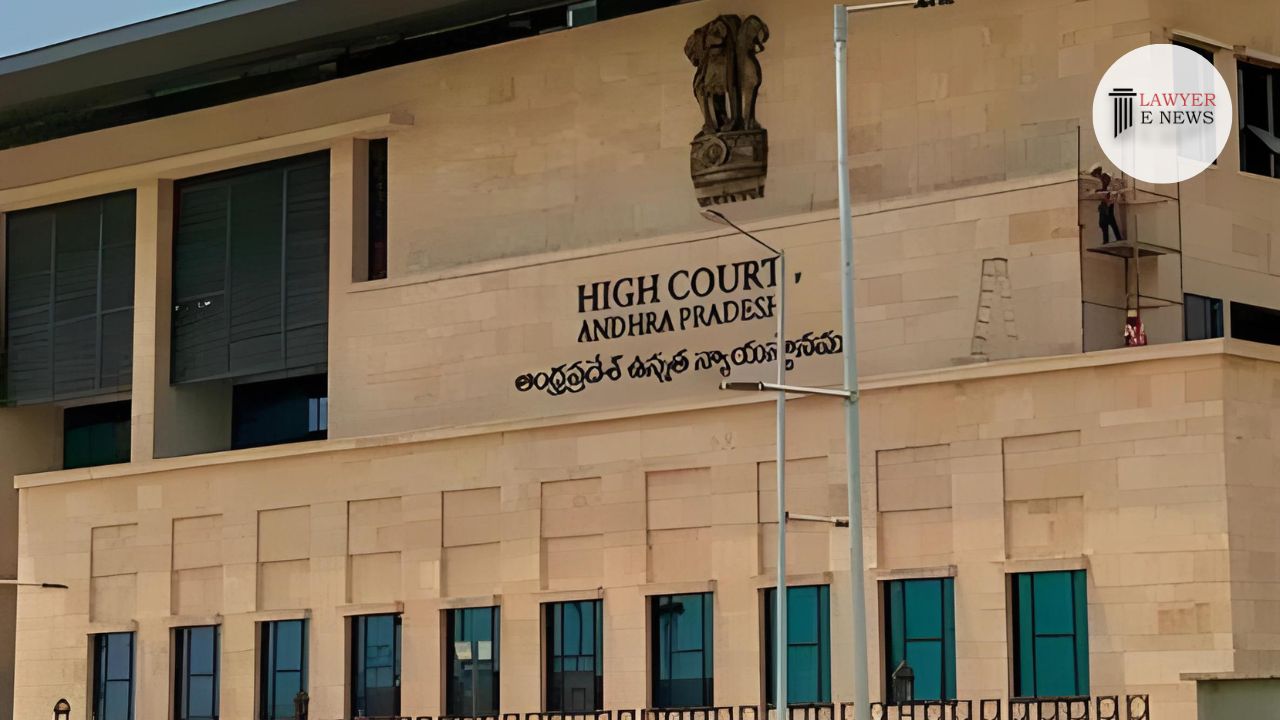-
by Admin
15 February 2026 2:36 AM



In a significant ruling, the Andhra Pradesh High Court dismissed the State Government’s second appeal challenging concurrent judgments of the trial court and first appellate court that granted a permanent injunction in favor of private landowners. The Court held that the government had failed to follow the mandatory procedure for resumption of assigned lands under the Andhra Pradesh Assigned Lands (Prohibition of Transfers) Act, 1977, and could not substantiate its claims of ownership.
The case, State of Andhra Pradesh v. S. Murali Mohan and Others (Second Appeal No. 150 of 2013), involved a dispute over several plots of land claimed by the plaintiffs based on registered sale deeds and historical ownership documents. The government, on the other hand, argued that these were assigned lands subject to non-alienation conditions and had been resumed for redistribution to weaker sections.
The plaintiffs, five private individuals, filed a suit in 2007 seeking a permanent injunction to restrain government officials from interfering with their possession of lands listed in the plaint. The plaintiffs supported their claims with registered sale deeds, historical title documents, and an Advocate Commissioner’s report corroborating their possession.
The defendants, represented by the District Collector, Kurnool, argued that the lands in question were government-assigned lands that had been improperly sold in violation of the Assigned Lands Act, 1977. The government further claimed that the lands had been resumed and handed over to the Andhra Pradesh State Housing Board for redistribution.
Both the trial court and the first appellate court ruled in favor of the plaintiffs, holding that the government failed to provide evidence of assignment conditions, resumption, or compliance with mandatory legal procedures. The State Government then filed a second appeal under Section 100 of the Code of Civil Procedure, 1908, before the High Court.
Plaintiffs Proved Legal Possession
The Court found that the plaintiffs had adequately proven their possession and enjoyment of the disputed lands through registered sale deeds and supporting link documents. The evidence presented by the plaintiffs, including the Advocate Commissioner’s report, showed uninterrupted possession.
“The oral and documentary evidence produced by the plaintiffs clearly proves their possession of the suit schedule properties as on the date of filing the suit,” the Court observed.
Government Failed to Follow Mandatory Procedure for Resumption
The High Court ruled that the government failed to comply with Rule 3 of the Andhra Pradesh Assigned Lands (Prohibition of Transfers) Act, which requires the issuance of a Form-I notice to the person in possession of the assigned land before eviction or resumption.
“The mandatory Rule 3 notice was not served on the plaintiffs or their predecessors, rendering the resumption process invalid,” the Court held.
No Evidence of Assignment Conditions or Ownership
The Court criticized the government for failing to produce any assignment orders or evidence showing that the lands were subject to non-alienation conditions. The sole reliance on records with corrections and overwritings, which were visible to the naked eye, was deemed insufficient.
The government’s witness, a Tahsildar (D.W.1), admitted under cross-examination that the assignment register was unavailable, and no assignment orders had been filed.
“The burden was on the defendants to prove that the lands were assigned with conditions of non-alienation, but they failed to discharge this burden,” the Court noted.
Injunction Granted Without Declaration of Title
While the government argued that the plaintiffs were required to seek a declaration of title before seeking an injunction, the Court disagreed. It held that the plaintiffs, having proven their possession, were entitled to seek a permanent injunction to protect their enjoyment of the lands.
“In a suit for permanent injunction, the initial burden lies on the plaintiffs, and the same was properly discharged,” the Court stated.
The High Court upheld the judgments of the trial court and first appellate court, affirming the permanent injunction against the government and its agents. It concluded that the plaintiffs were entitled to protection of their possession, as the government failed to follow mandatory procedures or provide evidence to substantiate its claims.
“The appellants failed to prove that the lands in question are assigned lands and that the resumption process was legally valid. Therefore, the plaintiffs are entitled to the relief of permanent injunction,” the Court ruled.
The Court dismissed the second appeal, directing that each party bear their own costs.
Date of Decision: January 2, 2025
